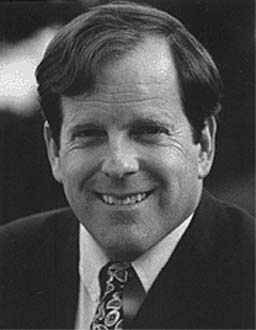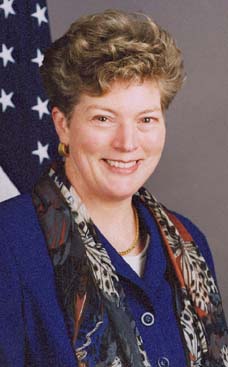
"As Americans continue struggling with high gas prices and our country’s energy crisis, “to drill or not to drill” is the wrong argument to be having. It’s perfectly understandable that when folks are hurting from high prices, they want solutions and they want them now. The key is to have solutions that will actually work. When you dig past the rhetoric, you see that opening our protected coasts and wildlife refuge would do nothing to lower prices or solve our energy crisis. Bottom line: The United States holds less than 3 percent of the world’s oil, but we use 25 percent of it. Drilling in new areas would simply not produce enough oil to impact prices on the world market. The government’s own Energy Information Administration tells us that oil from new coastal drilling would not be available for nearly a decade, and that it would not reach peak production for roughly 20 years. The oil would amount to a drop in the bucket." Sierra Club President Carl Pope served as a Peace Corps Volunteer in India in the 1960's.
Carl Pope writes: Why we can’t drill our way out
Why we can’t drill our way out, by Carl Pope of the Sierra Club
By Carl Pope
Published: Thursday, August 14, 2008
As Americans continue struggling with high gas prices and our country’s energy crisis, “to drill or not to drill” is the wrong argument to be having. It’s perfectly understandable that when folks are hurting from high prices, they want solutions and they want them now. The key is to have solutions that will actually work.
When you dig past the rhetoric, you see that opening our protected coasts and wildlife refuge would do nothing to lower prices or solve our energy crisis.
Bottom line: The United States holds less than 3 percent of the world’s oil, but we use 25 percent of it. Drilling in new areas would simply not produce enough oil to impact prices on the world market. The government’s own Energy Information Administration tells us that oil from new coastal drilling would not be available for nearly a decade, and that it would not reach peak production for roughly 20 years. The oil would amount to a drop in the bucket.
And why should we be drilling more if the oil continues to be sent beyond our borders? Just this week, numbers from the U.S. Department of Energy showed that American oil companies continue to ship huge amounts of oil to other countries. In the first four months of 2008, American oil companies exported a record 1.6 million barrels per day — compared to the 1.2 million barrels per day in the first quarter of 2007. The Department of Energy also reported that a record 1.8 million barrels per day were exported during February 2008.
According to the Bush administration, more drilling could produce 200,000 barrels per day — yet right now we’re exporting more than 1.6 million barrels per day.
More drilling hasn’t lowered gasoline prices. According to the U.S. Bureau of Land Management, the number of U.S. oil wells increased each year between 2002 and 2006, but so has the price of gasoline.
The United States has more oil and gas rigs operating today than the entire rest of the world combined, with hundreds of millions of acres of onshore and offshore federal lands available for leasing. Our country has more than 800,000 producing oil and natural gas wells, and oil companies already own rights to 68 million acres of federal land and coastline that they aren’t even drilling.
Some politicians are also spreading rumors — Vice President Dick Cheney and others have claimed that countries such as China are already drilling off our coasts. But Cheney was forced to retract this statement after the Congressional Research Service proved there was absolutely no truth to the claim.
Meanwhile, as Americans have to figure out how they will pay to fill up their cars, the biggest oil companies just reported record quarterly profits in excess of $40 billion.
Big Oil has had us in a chokehold for too long. Americans need and deserve more energy choices. Instead of continuing to provide billions of dollars of subsidies to Big Oil, we should be investing in energy sources like wind, solar and biomass — renewable sources that will create jobs. Investments in clean energy and energy efficiency would steer us away from the dangerous course we’re on and infuse our economy with new life. They would benefit all of us, not just the richest oil companies in the world.
By making big oil companies pay their fair share, we can fund tax credits and refund checks to regular Americans for immediate, short-term relief from gasoline prices — something drilling wouldn’t do.
Why hold up good proposals, such as more renewable energy that everyone agrees on, to benefit oil companies that are happy with high prices? There are better solutions to our energy crisis.
Carl Pope is executive director of Sierra Club, an environmental organization. This commentary was distributed by minutemanmedia.org.













